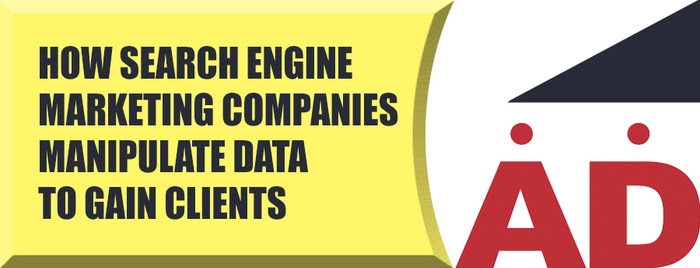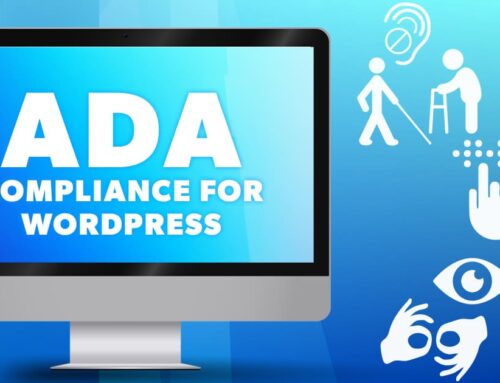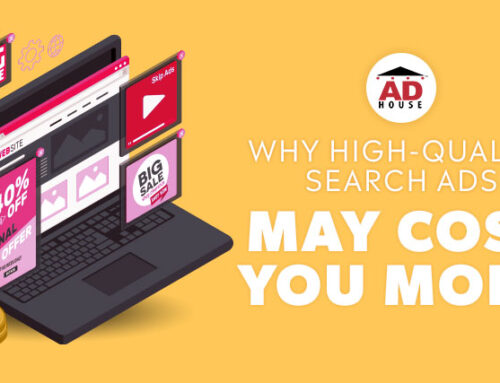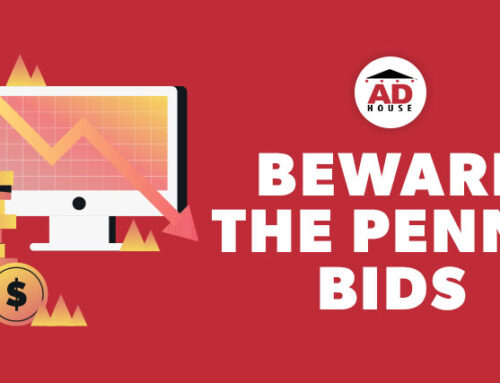How Search Engine Marketing Companies Manipulate Data to Gain Clients

If you’ve been contacted by a digital advertising agency that wants to take on your online advertising, these pointers will help you see through the pitch and understand what’s important in choosing a partner to help your company attract new customers.
“Your company’s ad showed in position ___ for a low cost, high performing term like “(fill in the blank)”, so you are receiving fewer leads.”
It’s actually very easy to find a term that looks like it should be frequently searched but really isn’t all that common. In a recent example, a competitor alleged one of our clients was losing hundreds of leads a month because their online ads didn’t use a specific term that they said was a “low cost, high performing” term. However, in the last 3 months, there were just 122 total searches for that term. We were able to show how people really search, using a more specific term. And in those same 3 months, their search ads had 23,105 impressions/187 clicks and a 40.22% conversion. Another similarly specific term had 14,648 ad impressions/149 clicks and a 47.62% conversion rate. When a competitor is trying to earn new business, it’s easy to use statistics to create a saleable story.
“Your company does not show for Brand Searches and you are being conquested by a competitor when someone searches for you.”
If you are running Branded Search ads- and you should be- note that they likely will not show 100% of the time as a matter of budget. To see how often your Branded Search ads do run, and how others compete against you, review your AdWords Auctions Insight Report.
With that report, you’ll see what percentage of the time your branded ad shows (we recommend 40-60% as the goal) and what percentage of the time it shows, it’s in the #1 position (we recommend 40-60%). You’ll also note which competitors target your branded search terms and can gain perspective on how aggressively they bid to place above your ad.
It’s not reasonable to expect 100% of the time, your branded ad will appear; your budget likely needs to target additional campaigns.
“Your company isn’t using ad extensions; all competitors are using them. You are losing out on leads because your digital agency is not using extensions.”
Search engines determine when to include extensions like site links and callouts that appear along with the text of your ad; they do not appear on every search, so a digital agency competing for your business may have made multiple searches until one of your ads appeared without extensions.
It’s easy in AdWords to see how often your extensions show; remember, they generally only place when your search ad is in positions one through three, so if you’re not bidding high enough to be there, you also won’t have extensions able to show. A number of factors help the AdWords ad auction system determine which extensions to show, if at all. This includes your expected click-through rate for a given term, your ad rank, quality scores, and other factors.
“Your company isn’t showing on Bing in search results. You’re missing out on substantial traffic and need to advertise on Bing.”
Bing represents a significantly smaller share of searches. This is true for traffic, both paid and organic, that originates from Bing. Advertisers generally respond in-kind, dedicating a smaller budget to Bing. Speak with your Digital Agency to determine an appropriate Bing budget for your needs.
So, before you rush to include Bing in online ad campaigns, make sure you’ve maximized Google Search Networks first, as it provides a much more significant share of traffic than Bing. And you probably shouldn’t spend a higher percentage of your digital budget on Bing than the share of traffic it brings to your website.
“Our review finds you are not in many of the online review sites and social media sites, so prospects can’t find you.”
In most online review sites, you go through a process to claim your business, then manage that information by adding your business hours, photos, and responding to reviews. For most small to medium businesses, that could be dozens of potential sites.
Yet for most businesses, there are a small handful of places you absolutely should be, and the others just don’t matter very much.
We focus our clients heavily on the importance of Google My Business as the primary place to manage, and to respond to reviews. Since Google has far-and-away the dominant share of searches and is where most prospective customers will look for and find reviews, it’s the primary site to pay attention to. Also, as your business gains enough overall reviews, the all-important row of stars (showing others’ experience with your business) can come into your digital Search ads as an additional line of information.
Note that sites like Yelp.com, used by Yahoo and Bing as well, clearly state once you claim your free listing, that not all positive reviews will be shown. Yelp.com seems to show negative reviews in a higher proportion, at least until you agree to subscribe to a monthly fee. In addition, Yelp is largely restaurant/hotel/customer service; if you own a restaurant, then you should actively monitor and respond to your Yelp comments but if you are an attorney, this shouldn’t be an area to focus on.
There are dozens and dozens of others including Superpages.com, MerchantCircle.com, and FourSquare. FourSquare is largely a social media/game/referral site. It is much more pertinent for coffee shops, restaurants, entertainment businesses than most retail or professional services.
Another site we’re asked about fairly often is Angie’s List, which has quite a small but loyal following of online users who turn to the service to find a new plumber, hairdresser, or doctor. However, the listing of service providers isn’t based just on others’ positive reviews but on which companies provide them ad dollars.
As the business owner, be aware: some sites are much, much more important than others, and no, you don’t need to be on them all. Focus on the sites most important for your type of business.
“Most keywords rank on pages 4-10, and you only have a fair presence on pages 1-3 of search results.”
If a search engine marketing or search engine optimization company is pitching you, here are several important things to know. If the search was performed from outside your immediate geographic location or if it used a bot to crawl the site, the results will be dramatically skewed.
And very importantly, search engine results now are individualized by the user, so no two results will necessarily be the same. That’s the importance of pushing reviewers to Google+ to leave a review, because of its degrees of impact on all other people connected to that reviewer, as well as all of those people’s circles.
If you really want to see how your site ranks organically on all the various keyword searches, investigate Google Webmaster Tools.
In a nutshell, when a company is pitching their services, it’s often based on what they evaluate you’re currently doing, and how they can make it better. As Mark Twain is quoted, “Figures don’t lie but liars figure”. And in online marketing, the complexities and jargon can provide a smokescreen that’s difficult to evaluate. If we can give you insight into a proposal you’ve received, or you’d like to chat about online marketing and how we approach it from an ROI basis, give us a call at Ad House Advertising.



